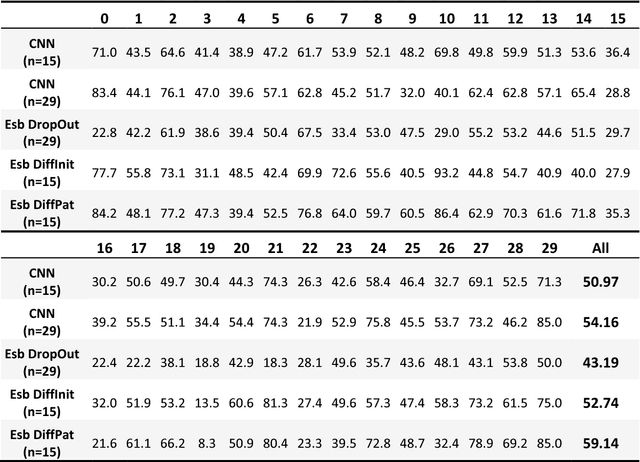Parkinson's Disease Assessment from a Wrist-Worn Wearable Sensor in Free-Living Conditions: Deep Ensemble Learning and Visualization
Paper and Code
Aug 08, 2018



Parkinson's Disease (PD) is characterized by disorders in motor function such as freezing of gait, rest tremor, rigidity, and slowed and hyposcaled movements. Medication with dopaminergic medication may alleviate those motor symptoms, however, side-effects may include uncontrolled movements, known as dyskinesia. In this paper, an automatic PD motor-state assessment in free-living conditions is proposed using an accelerometer in a wrist-worn wearable sensor. In particular, an ensemble of convolutional neural networks (CNNs) is applied to capture the large variability of daily-living activities and overcome the dissimilarity between training and test patients due to the inter-patient variability. In addition, class activation map (CAM), a visualization technique for CNNs, is applied for providing an interpretation of the results.
 Add to Chrome
Add to Chrome Add to Firefox
Add to Firefox Add to Edge
Add to Edge